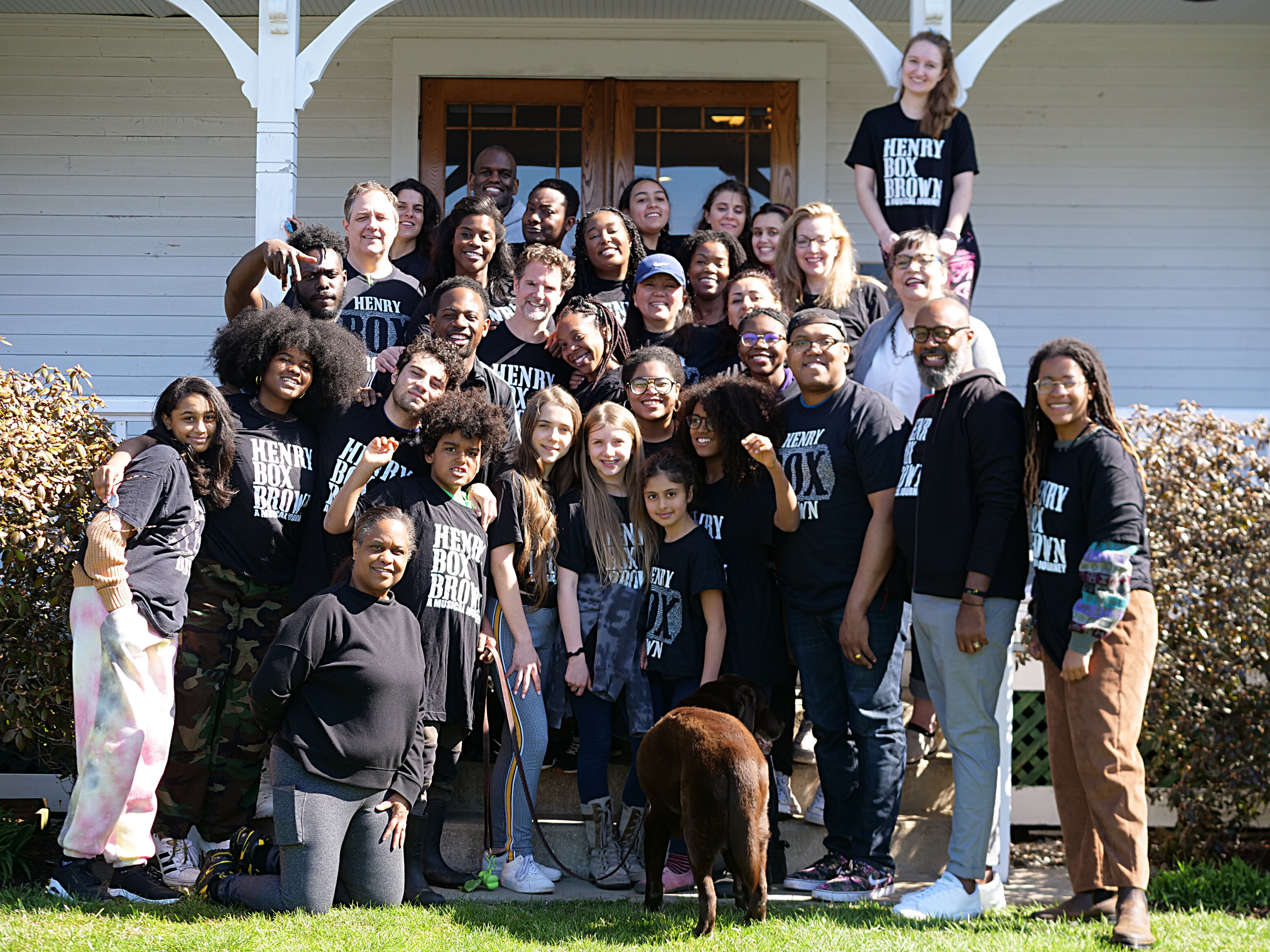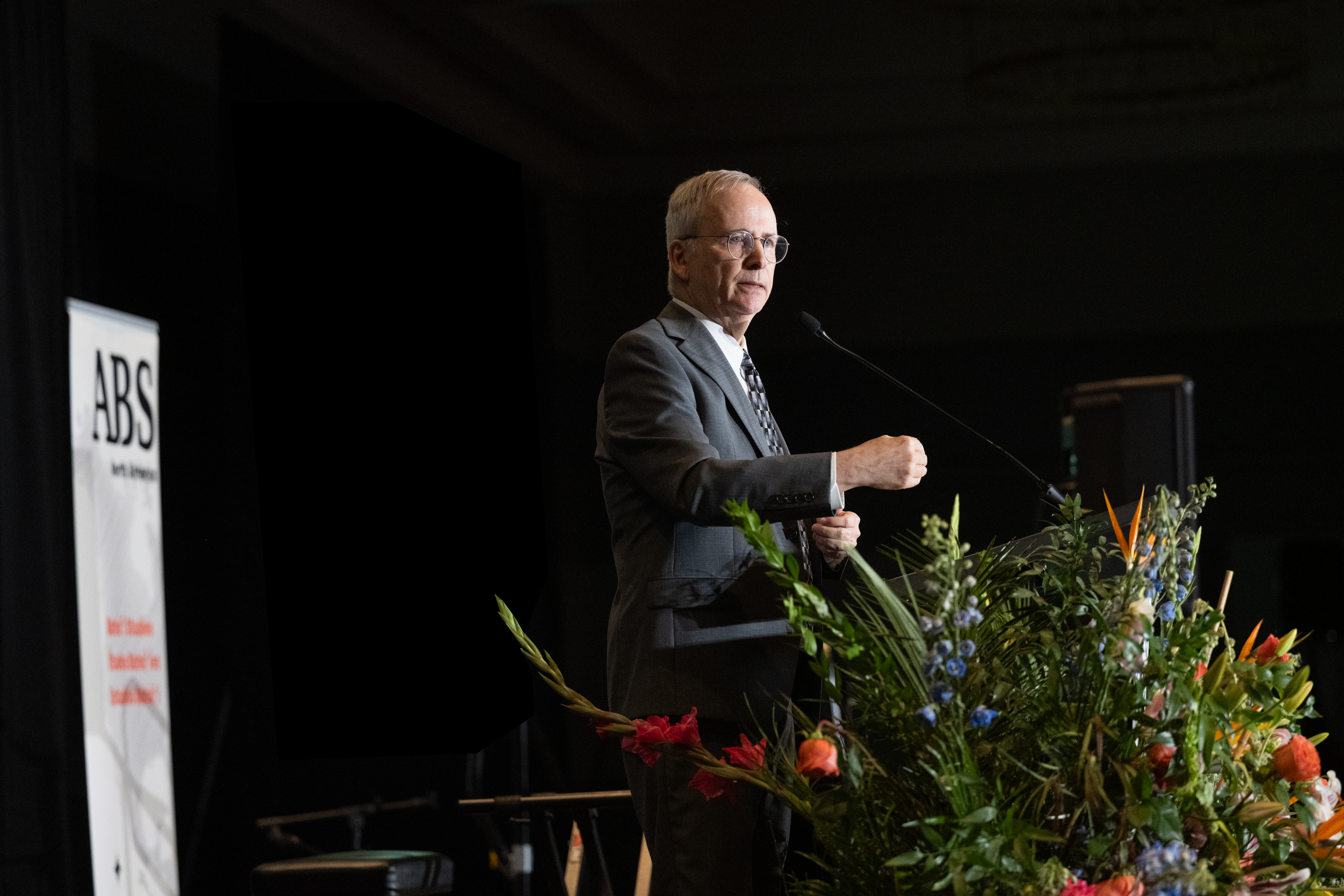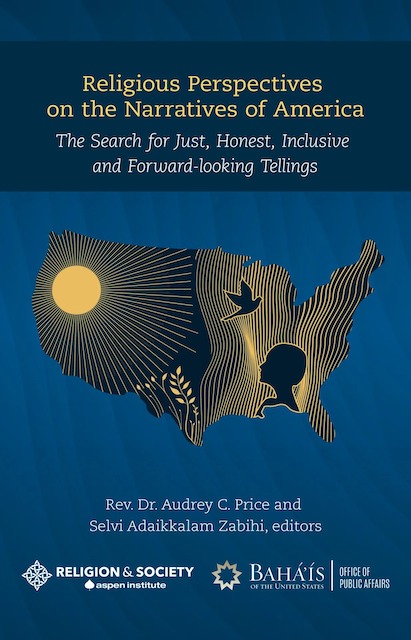
Course helps Persian immigrants respond to Anti-black racism in America
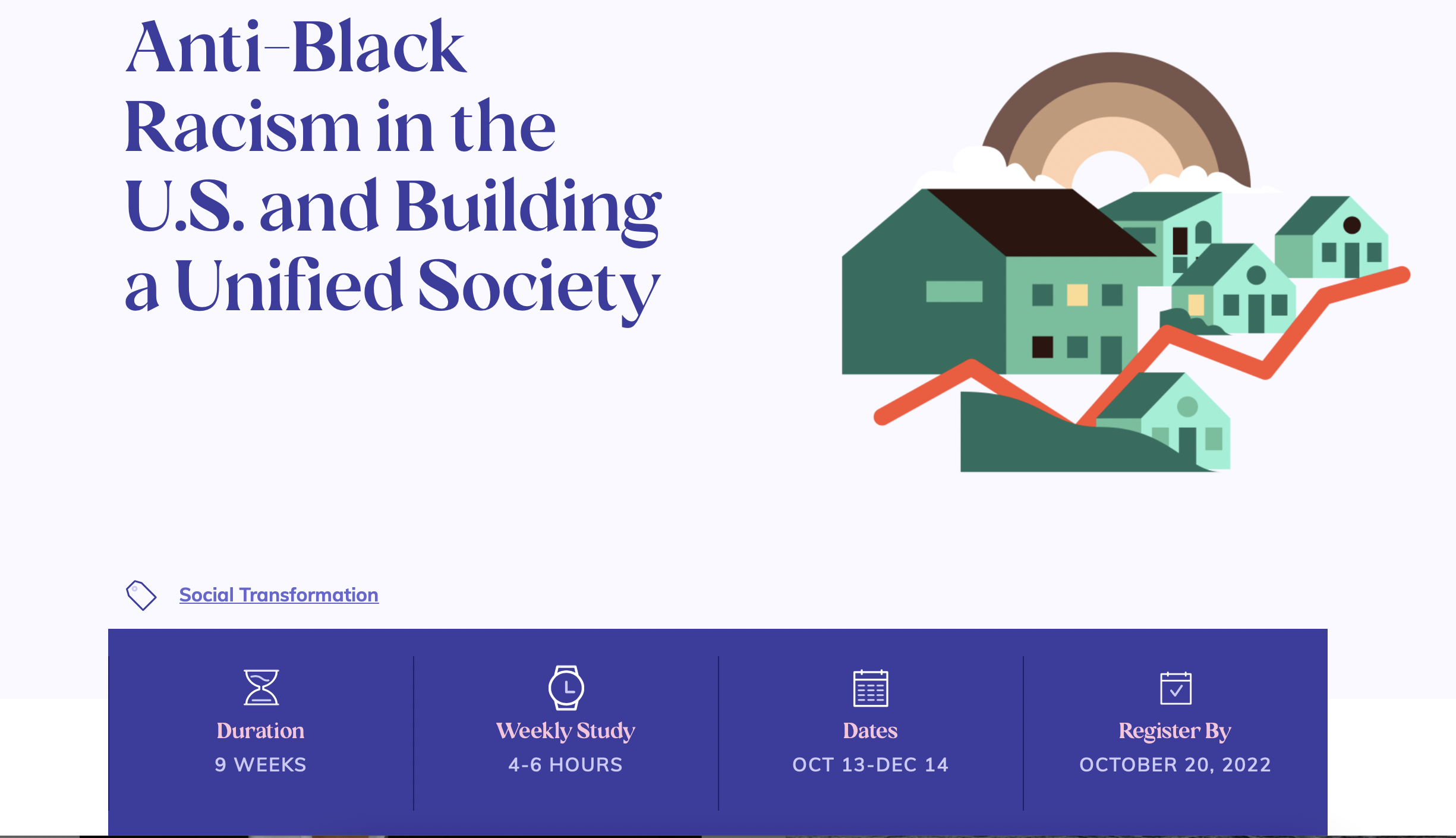
The elimination of racism is a spiritual mandate of the Baha’i Faith and a prerequisite for establishing the oneness of humanity. Baha’is know the importance of opposing racism.
However, for some immigrant populations, as has been evident among Persian Americans in the Baha’i community, understanding the systemic nature of racism in the United States is difficult terrain to navigate. For this reason, the Wilmette Institute, in consultation with the Northwest Regional Baha’i Council (which includes the states of Oregon and Washington), created a course for Persian Americans on the Baha’i teachings about racism and race relations.
When the Wilmette Institute first offered the course Anti-Black Racism in the U.S. and Building a Unified Society, members of the Northwest Regional Baha’i Council (NWRBC) took the course and encouraged Baha’is in their region to enroll the next time it was offered.
The NWRBC noticed that few Persian Americans signed up for the class. Some acknowledge thinking it didn’t apply to them. “I always thought I had no prejudices to any groups. I was raised in a Baha’i family, with Baha’i principles,” says Naz Parsiani, who immigrated to the U.S. in 1978 at age 16.
“Some Persian friends thought that because they are followers of Baha’u’llah, they don’t have to worry about racial prejudice,” says one of the course creators, Chitra Golestani.
Understanding this challenge, the Wilmette Institute developed a class in the Persian language: Race Unity: The Role of Persian Americans. Response to the class was eye-opening and inspiring. “The course opens up an exploration of how racism is in the fabric of our country and what we can do about it. As stated in the July 22, 2020 message of the Universal House of Justice [the international governing council of the Baha’is], we need to dedicate our lives not only to rooting out racism, but supplanting it with true friendships that contribute to ‘the establishment of just relationships among individuals, communities, and institutions of society,’” says Golestani.

Parsiani enrolled in the class because she’d been upset about the killings of Black people reported in the news and wanted to understand more about the challenging issue of racism. “As a result of taking this class, it opened my eyes to be more aware of my own faults. It widened my perspectives to know what racism is about. [Before taking the class] I didn’t even know the history of slavery in the United States,” Parsiani says. “When I took the class, I became more aware. I learned it’s not enough to take the course; I need to continue educating and reflecting, to change not just my thoughts, but my heart and my actions,” she says. “I’m so glad I took the class.”
This virtual weekly class, which will be offered again in 2022 starting Sept. 15, is structured so that all the participants begin each class time together, break out into smaller sessions for discussions, then come back for reflection. Sessions are dynamic with videos, podcasts and reading materials.
One of the course instructors, Arta Monjazeb, says, “I think educating ourselves about the true nature of racism in this country is critical. The disease of racism affects every aspect of American life and afflicts our Baha’i communities as well. If we do not understand the true history and nature of this disease we will be powerless to protect ourselves and our communities from its pernicious influence.”
Hoda Hosseini says she had been studying and opposing racism for decades, as it was an issue that was deeply troubling to her; and yet she still gained much from the class. Race Unity: The Role of Persian Americans meant so much to her, in fact, she will volunteer as a teacher’s assistant in the next class.
“There’s anti-Blackness in Iran and there’s anti-Blackness in America, and I have to commit to weed out those inherited tendencies as well as those subconscious feelings and attitudes of superiority on a moment-to-moment basis,” she says. “Anti-Black racism is real; it is a global problem, but first I have to work on myself, be brutally honest and constantly check myself. It’s a constant battle within, to bring myself to account every day and try to do better.”
In these efforts, Hosseini feels the biggest blessing has been many deep long-lasting intimate friendships and close proximity with her Black Baha’i friends for decades. Listening to examples of their daily struggles also continues to fuel her personal commitment to address the Baha’i admonition “first to regenerate the inward life of their own community, and next to assail the long-standing evils that have entrenched themselves in the life of their nation.”
Hosseini says some Baha’i immigrants from Iran believe that the challenges experienced by Black Americans are exaggerated because they feel they have faced similar problems of religious oppression back home and they “don’t complain and get angry.” She says, “They don’t understand the extreme circumstances and trauma brought on by the legacy of chattel slavery and the continued anti-Blackness and institutionalized racism Black Americans deal with every day from cradle to grave, generation after generation.”
Hosseini says there is also the view on occasion that racism “has gone on for 400 years; I had nothing to do with it. But we can’t hide behind ‘Oh, I’m just an immigrant, I didn’t create this problem.’ We can’t say ‘Black [people] exaggerate; things are much better now’ or blame them and say it’s their problem. It’s actually our problem!” she says.
“We are the ones asked to first make a supreme effort to abandon our racial prejudice towards Black [people] and promote racial justice and unity before we have the expectation of the corresponding effort of our Black brothers and sisters.”
Hosseini says for an example, we need to look to ‘Abdu’l-Bahá, the son of the Baha’u’llah, founder of the Baha’i Faith. “When ‘Abdu’l-Baha visited [North America in 1912], He knew what side He was on. He was on the side of justice. He wasn’t apathetic. He was courageous. He was intentional in his behavior, attitude, language and actions. He really did notice, see, understand and empathize with the plight of Black Americans,” she says. “He even encouraged intermarriage at the height of American eugenics when it was even against the law in 26 states for Blacks and whites to marry. Now that was impressive and revolutionary over a hundred years ago! He unapologetically and fearlessly carried the bright torch of the oneness of humanity to the heart of all Americans.”
Golestani says that in the class, “we explore our prejudices that every human being has and look at how the Revelation can help us become promoters of race unity. Being protagonists of race unity in general is great, but it’s not specific enough. How are we protagonists of race unity? Through community building at the grassroots level.” This process, she notes, makes protagonists out of all its participants through study, consultation, action and reflection.
Says Hosseini, “These courses are eye opening and once you wake up, you do not want to go back in the cave.” Some people tell her not to worry about racism because it will go away eventually. But she feels strongly that we must do something about it – not just rest and wait. “Black Americans don’t want us to feel sorry for them or patronize them; they want us to be accountable, to acknowledge the privilege our skin color affords us and they want to see what whites and others are doing to heal this mutating cancer of racism,” she says. “We need to look at ourselves. What do we need to do to encourage more Black people to be attracted to and enter the Faith? We are trying to build a diverse community to allow everyone to bring their gifts to the table without us raising our eyebrows insisting that they assimilate into what we impose as the ‘right’ Baha’i culture.”
Parsiani says she has learned to be aware, to develop relationships and to speak up when she hears derogatory conversation about others.
Another thing she’s learned is that true friendships with people of other races are crucial. “I need to seek relationships with people of all colors,” she says, explaining that she is starting with her neighbors. “My goal is now to build on our relationship, to make more intimate relationships with people of color, to feel like they are our brothers and sisters and really act on it.” Many participants and facilitators in the course have arisen to put knowledge into practice as captured in this news article on the Wilmette Institute website: https://wilmetteinstitute.org/report-addressing-anti-black-racism
“I learned to have open and honest conversations with my own family, when we sit at the dinner table, to talk about injustices I see,” says Parsiani, a real estate agent. She’s been asked by clients who have seen Black residents if a neighborhood is safe. “Now I try not to be silent. I have grandchildren now; it’s important to raise children and grandchildren to be mindful. There are so many books about racism and I never before thought about looking for books on the topic to teach my grandchildren. If we start with our children, it makes a big difference.”
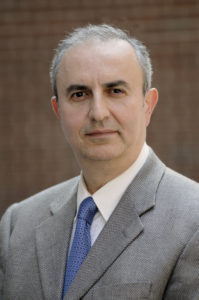
“In our teaching efforts, we often talk about the oneness of mankind as a pivotal principle of the Baha’i Faith,” says Farhad Sabetan, another course instructor. “However, simply stating this principle does little to demonstrate our deep desire to make it a viable reality. Striving to unite races and eliminate racial prejudice is, without a doubt, a concrete step toward that ideal we all cherish and believe.”
Azita Moallem, another course instructor, wants participants to learn the unique history of Black people in America. Reflecting especially on the atrocities suffered in enslavement — separation from children, physical and sexual abuse, even murder — she asks if one puts oneself in that place, “how would you feel?”
Every night for a month, Moallem emailed historical facts about Black women in American history to members of her Baha’i community in Oregon. A Black community member used that information to create a quiz game for Ayyam-i-Ha, a festive Baha’i community celebration in February. Moallem was so surprised that participants knew the answers, that she was moved to tears. She knew the emails had made a difference.
Moallem had heard Persian-Americans say their English was too broken to be able to make friends with non-Persian speakers. So she decided to teach English, Monday through Friday, on Zoom, free for whoever wanted to learn. “Every morning we get together because if you learn English, you’ll want to talk to people. I found libraries that teach English and told people ‘don’t be shy; try to get out of your comfort zone.’” She also encouraged people to volunteer at Big Brothers Big Sisters, to spend a few hours a week with a child.
A lot of people in the class are considering teaching their grandchildren the class material, Moallem says. “This is important because we don’t know if they will learn this in school.” Class participants have told her that they have developed action plans they never thought they would create, she says.
The Wilmette Institute offers many classes on the topic of racism. Race Unity: The Role of Persian Americans will be offered again Sept. 15 through Nov. 16, and Anti-Black Racism in the U.S. and Building a Unified Society will be re-offered Oct. 13 through Dec. 14. More information is available at https://wilmetteinstitute.org/community-learning-courses/
Leslie Farrell
Farrell Communications, Inc.
813.493.1805
@LeslieFarrell (Twitter)
Leslie.Farrell (Instagram)
Farrell Comm


